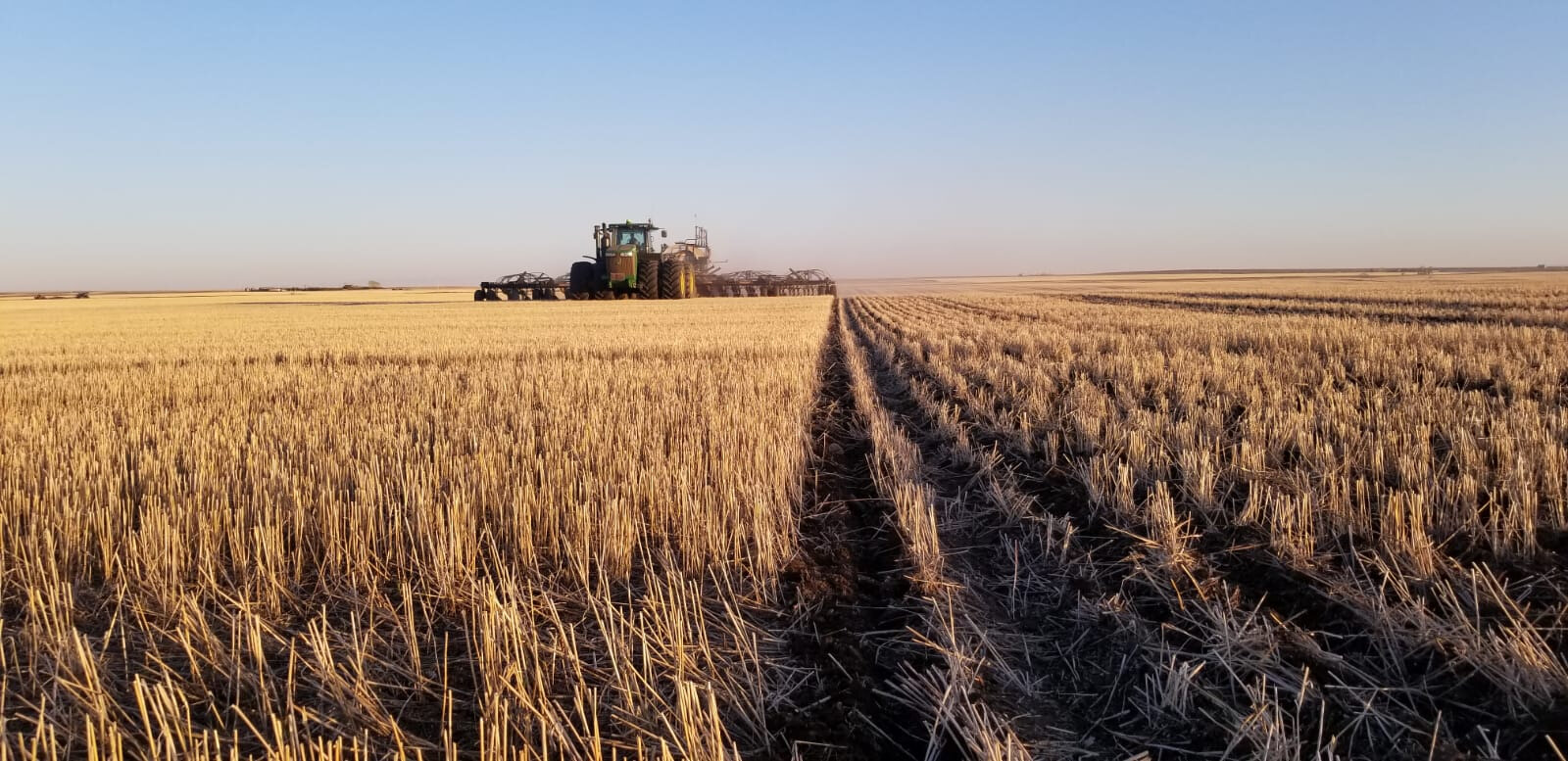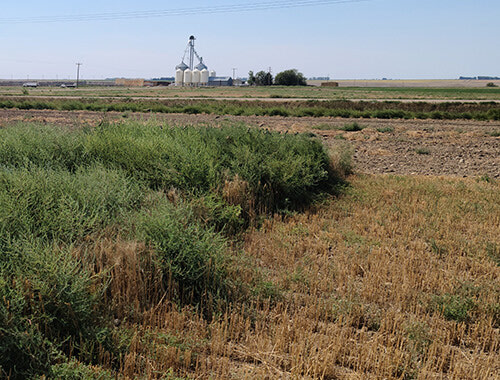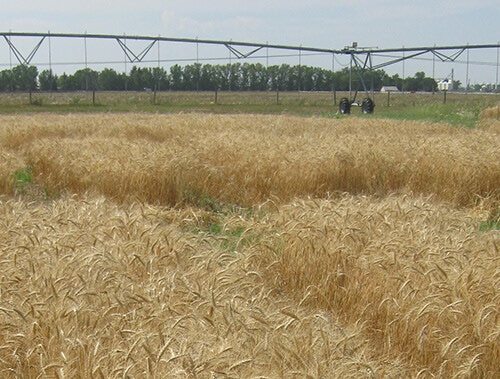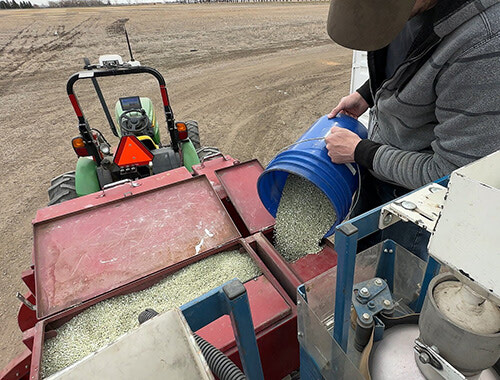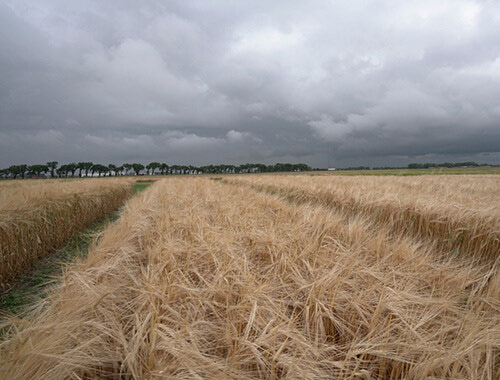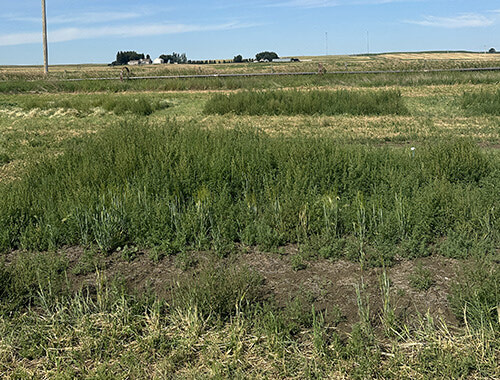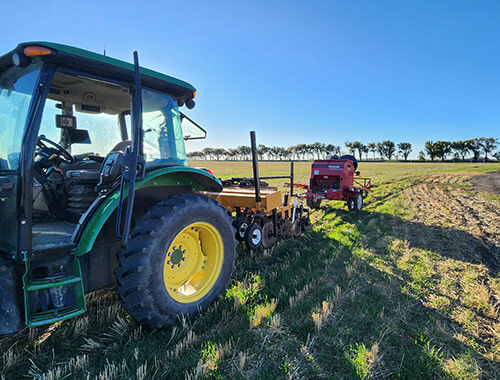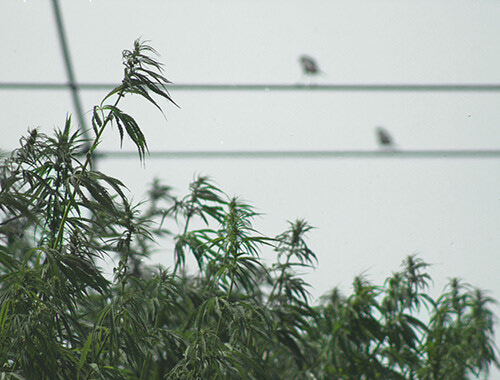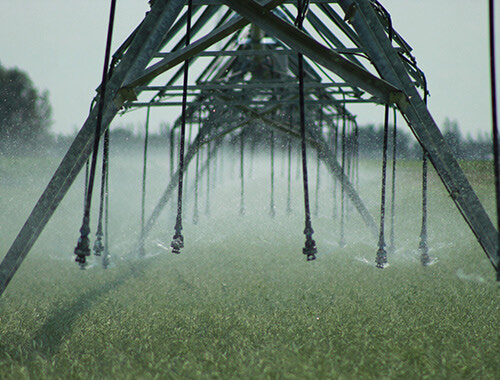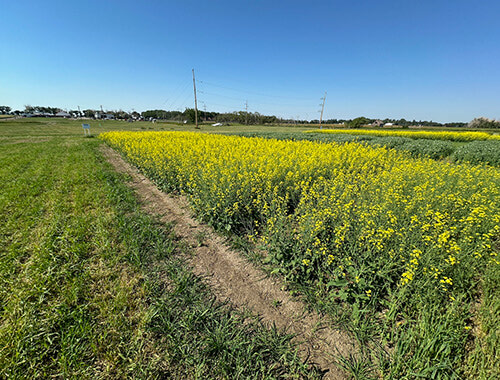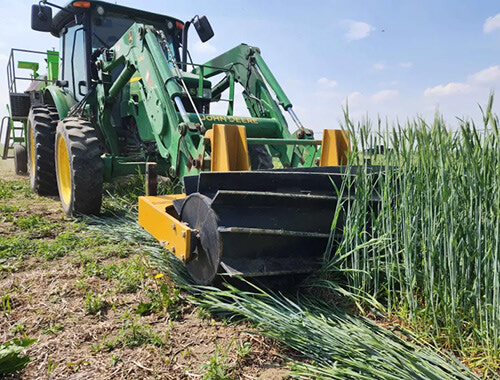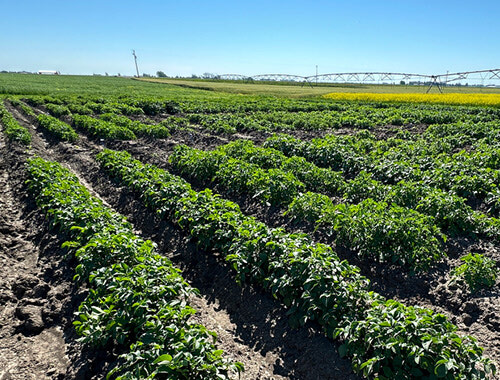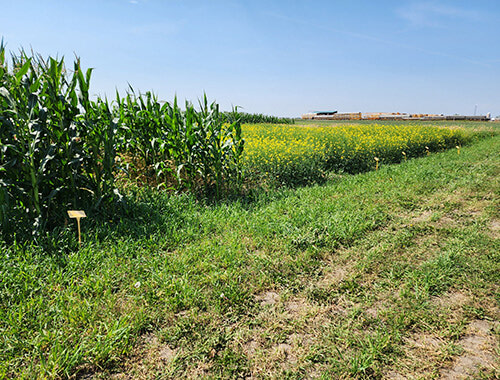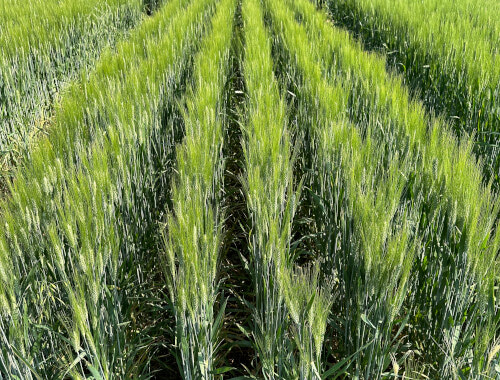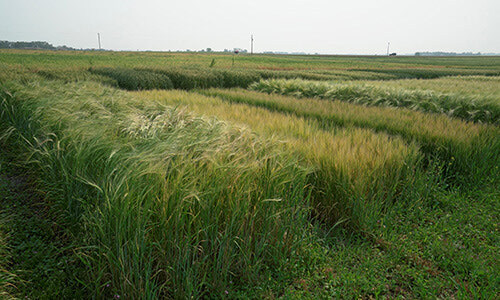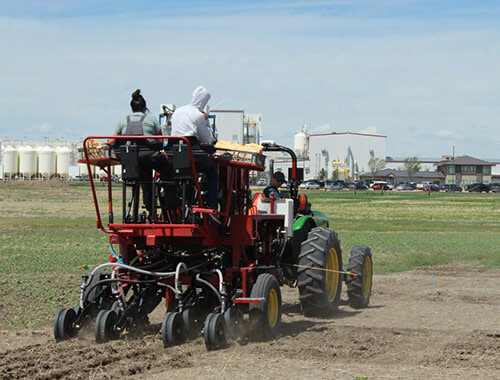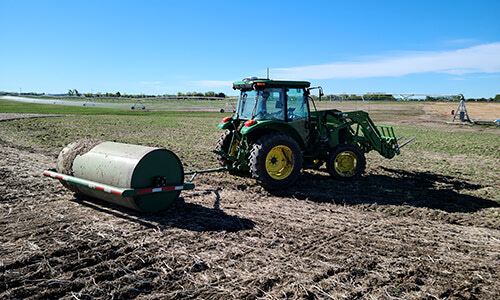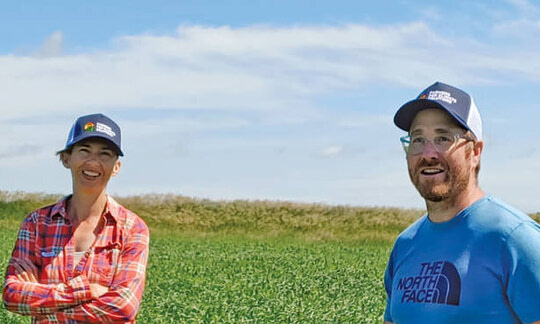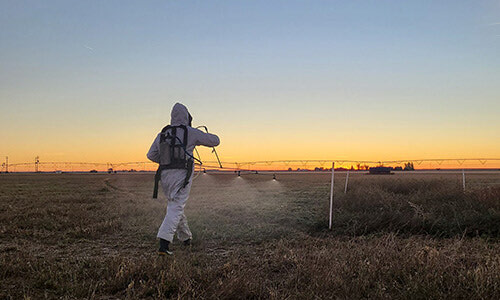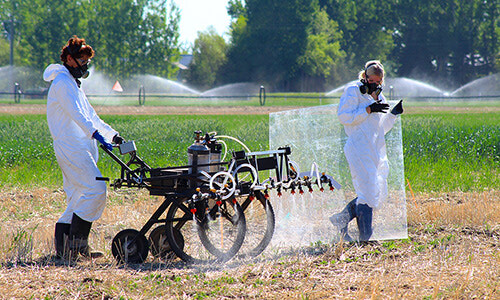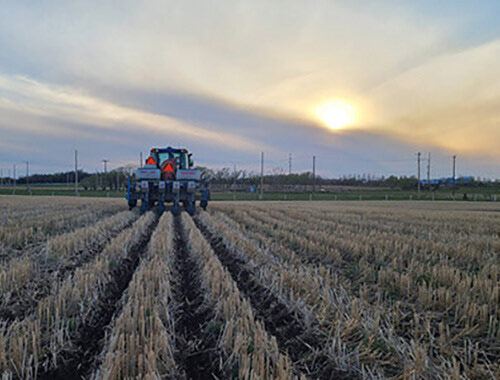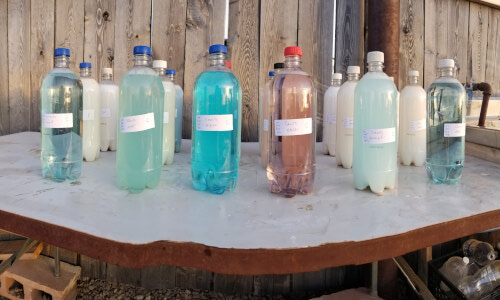All Research Projects
2025-2030
Pulse crops suffer tremendously from weed competition, yet offer significant benefits when included in crop rotations. Saskatchewan Pulse Growers is funding researchers across the Prairies to discover successful weed management strategies pulse growers can count on.
2026-2029
Spring Wheat is the most common irrigated crop in Alberta, where irrigated acres are unfortunately threatened by reduced allocation rates if reservoirs remain below normal levels. This project investigates the crop yield and quality response at multiple reduced rates to arm farmers with effective knowledge.
2025-2029
Very few crop varieties grown today have specific nutrient recommendations and instead rely on those for older cultivars. This project will collect the crop yield data necessary to update nutrient response information for these modern varieties so farmers can optimize their economic returns and environmental impacts.
2025-2029
Beef cattle feed producers in southern Alberta stand to improve water and nutrient use efficiencies, and enhance their land's productivity and economic outcomes by adopting a double cropping system. This study will identify the optimal winter cereal and second forage crop options along with the harvest timings to maximize silage yields and ROI.
2025-2028
Most integrated weed management (IWM) approaches that are effective at managing kochia will fail when used in marginal areas of the field. We aim to identify which tools are effective in these zones to provide farmers across the Prairies with IWM strategies to reduce kochia populations.
2025-2028
Exploring the feasibility and benefits of deep banding fertilizers with the strip-till passes for irrigated canola production under southern Alberta growing conditions.
2024-2027
Identifying effective seed treatments and seeding strategies to improve hemp seed emergence and survivability without undermining yield stands to reduce costs for growers and increase the profitability of the crop
2024-2027
Evaluate the performance of fall field retting, augmented fall field retting, and an overwinter field retting to create recommendations for hemp growers. Additionally, identify seeding rates and harvest timings to promote the best quality and quantity of yields.
2024-2027
Developing an Irrigation Decision-Support System using real-time sensor data to generate irrigation prescriptions for variable and uniform rate water delivery.
2023-2027
Farmers in southern Alberta have a vested interest to protect their soils from wind erosion overwinter and trap soil moisture to combat summer droughts. However, they require options that won't interrupt their cash crop rotations. Fall-seeded camelina stands to provide an answer to both of these concerns with overwinter protection while being a cash crop.
2022-2027
In response to growing interest of cover crops, we have begun a 4-year project investigating the viability, management, and benefits of their adoption. While it is known that cover crops have many benefits for erosion control and weed suppression, we want to explore the lengths of their benefits for your soil.
2022-2027
As part of the Saving Soils initiative, Farming Smarter explores nurse crop, cover crop, and relay crop practices in irrigated potato trials to reduce soil erosion and improve soil quality in potato production.
2022-2027
Annual crop systems can be optimized with the addition of cover crops. By terminating the cover crops at the right time, you can provide your cash crop with an extra source of organic matter, wind cover, with an edge in weed competition.
2021-2025
This study will clearly identify the risks and benefits (in terms of crop stand establishment, yield, and quality) associated with ultra-early plantings of CWAD in western Canada over a wide range of climatic conditions, including dormant-seeded situations.
2022-2025
Farmer yields are managed by balancing cultivar selection and agronomic practices. We hypothesize that feed barley yields could be improved by adopting new cultivars and improved agronomic practices.
2019-2025
A biological and physical baseline developed within the province will provide a framework that can help define strategies for managing and improving the productive capacity, and sustainability, of our soils.
2022-2024
Evaluating the efficacy of Replenish Nutrients products for promoting growth, yield, and soil health in canola, wheat, and faba bean crops.
2022-2024
Land rollers are commonly used to push rocks into the soils and improve harvest operation during silage crop production. Other benefits of land rolling
Free farm learning hub with information on advanced nitrogen management, cover crops and advanced grazing management.
2020 - 2024
Extended grazing is a key component of many beef operations increasingly cow-calf operations in western Canada use corn grazing in late fall/early winter. Benefits include increased yield, energy content, and increased average daily gain for late fall/early winter grazing of pregnant cows. However, pure stands of corn are low in dietary crude protein thus unsuitable for grazing of other classes of cattle with higher nutrient requirements.
2022-2025
Desiccating seed alfalfa 1-2 weeks earlier may improve desiccation efficacy and lower the risk of inclement weather interrupting harvest activities without impacting harvestability or grain quality (dockage and/or germination).
2022-2025
This study was designed to test the efficacy of Acetic acid in combination with surfactants to desiccate seed alfalfa. The goal is to increase the options for growers and improve harvestability and/or yield.
2020-2023
This study proposes to test the efficiency of management practices including strip tillage and precision planting in managing crop residues and improving canola emergence, growth, and yield.
2019-2023
Biostimulants are a relatively new class of crop additive that are suggested to promote healthy growth of crops resulting in higher yield/quality crops. Their use has expanded after the changes in regulations on fertilizers in Canada

